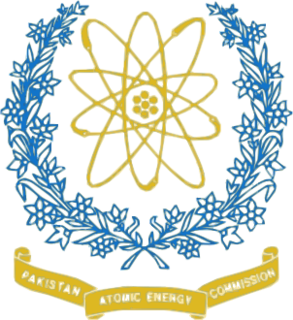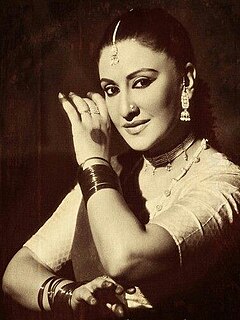
Karachi is the capital of the Pakistani province of Sindh. It is the largest city in Pakistan, and fifth largest city proper in the world. Ranked as a beta-global city, the city is Pakistan's premier industrial and financial centre, and is Pakistan's cultural, educational, and political hub. Karachi is Pakistan's most cosmopolitan city, its most linguistically, ethnically, and religiously diverse city, as well as one of Pakistan's most secular and socially liberal cities. With its location on the Arabian Sea, Karachi serves as a transport hub, and is home to Pakistan's two largest seaports, the Port of Karachi and Port Bin Qasim, as well as Pakistan's busiest airport, Jinnah International Airport.

Prince Shāh Karim al-Husayni, known as His Highness the Aga Khan outside Ismaili Muslim communities, and by the religious title Mawlana Hazar Imam to Ismaili communities, is the 49th and current Imam of Nizari Ismailism, a denomination of Isma'ilism within Shia Islam with an estimated 15 million adherents. The Aga Khan is a business magnate with British and Portuguese citizenship, as well as a racehorse owner and breeder. He has held this position of Imam, under the title of Aga Khan IV, since 11 July 1957, when, at the age of 20, he succeeded his grandfather, Sir Sultan Muhammad Shah Aga Khan III. It is believed that the Aga Khan is a direct lineal descendant of the Islamic prophet Muhammad through Muhammad's cousin and son-in-law, Ali, considered the first Imam in Shia Islam, and Ali's wife Fatima az-Zahra, Muhammad's daughter from his first marriage.
The Aga Khan Development Network (AKDN) is a network of private, non-denominational development agencies founded by the Aga Khan, which work primarily in the poorest parts of Asia and Africa. Aga Khan IV succeeded to the office of the 49th hereditary Imam as spiritual and administrative leader of the Shia faith rooted Nizari Ismaili Muslim supranational union in 1957. Ismailis consist of an estimated 25-30 million adherents. The network focuses on health, education, culture, rural development, institution building and the promotion of economic development. The AKDN aims to improve living conditions and opportunities for the poor, without regard to their faith, origin or gender. Its annual budget for not-for-profit activities is approximately US $ 950 million – mainly in Africa, Asia, and the Middle East. The AKDN works in 30 countries around the world, and it employs over 80,000 paid staff, mostly in developing countries. While the agencies are secular, they are guided by Islamic ethics, which bridge faith and society.

The Pakistan Atomic Energy Commission is an independent governmental authority and a scientific research institution, concerned with research and development of nuclear power, promotion of nuclear science, energy conservation and the peaceful usage of nuclear technology.

Akhter Hameed Khan was a Pakistani development practitioner and social scientist. He promoted participatory rural development in Pakistan and other developing countries, and widely advocated community participation in development. His particular contribution was the establishment of a comprehensive project for rural development, the Comilla Model (1959). It earned him the Ramon Magsaysay Award from the Philippines and an honorary Doctorate of law from Michigan State University.

The state religion in Pakistan is Islam, which is practiced by 96.28% of the population. Freedom of religion is guaranteed by the Pakistani constitution, which established a fundamental right of Pakistani citizens, irrespective of their religion, to equal rights. The remaining 4% practice Hinduism, Christianity, Ahmadis, Sikhism and other religions.

The All Pakistan Women's Association, or APWA, Urdu: آل پاکستان ویمنز ایسوسی ایشن as it is commonly known, is a voluntary, non-profit and non-political Pakistani organisation whose fundamental aim is the promotion of moral, social and economic welfare of the women of Pakistan.

According to the 1991 census recorded by Instituto Nacional de Estatística, there were 9,134 Muslims in Portugal, about 0.1% of the total population. However, the Islamic Community of Lisbon presently points to a number of about 40,000 according to 2011 estimates The Muslim population in 2019 was approximately 65,000 people. The majority of Muslims in the country are Shias, followed by approximately 5,000 to 7,000 Sunni Muslims. There is also a small number of Ahmadiyya Muslims. Most of the Muslim population originates from the former Portuguese overseas provinces of Guinea-Bissau and Mozambique, most of the latter having their origin in the Indian subcontinent. Most of the Muslims are from Syria and Mozambique. The Muslim population in Portugal also have an Islamic school in Palmela, named International School of Palmela which hosts students from around the globe, and brings tourism and a new spotlight to Portugal

Overseas Pakistanis refers to Pakistani people who live outside of Pakistan. These include citizens that have migrated to another country as well as people born abroad of Pakistani descent. According to the Ministry of Overseas Pakistanis and Human Resource Development, approximately 8.8 million Pakistanis live abroad, with the vast majority, over 4.7 million, residing in the Middle East. The second largest community, at around 1.2 million, live in the United Kingdom.

Aga Khan Fund for Economic Development SA is a Swiss for-profit entity and international development finance institution which invests in countries of East Africa, West Africa, Central Asia, and South Asia. It is based in Geneva, Switzerland.
Arabs in Pakistan consist of migrants from different countries of the Arab world, especially Egypt, Oman, Iraq, Kuwait, Syria, Libya, Saudi Arabia, Palestine, Jordan and Yemen and have a long history. The first form of contact between the Arab people and modern-day Pakistan originally came in 711 to Sindh, when Muhammad bin Qasim, an Arab military general, was on a quest to free Muslims and their families who had apparently been arrested by Raja Dahir's soldiers while they were returning in a merchant ship to their homes in Iraq's city of Basra from Sri Lanka.
Pakistani Canadian refers to the community in Canada of Pakistani heritage or descent. It can also refer to people who hold dual Pakistani and Canadian citizenship.
Bernadette Louise Dean is a Christian Pakistani academic and educator, of Portuguese descent. Formerly the principal of two women's colleges in Pakistan and a participant in revising Pakistan's national curriculum, she was accused of being a foreigner and forced to leave the country in 2015 by death threats from Islamic extremists after her role in working to secularize school textbooks became known. She has since become an academic administrator at the University of Central Asia.

Immigration to Pakistan refers to the settlement of foreign nationals in Pakistan. Immigration policy is overseen by the Interior Minister of Pakistan through the Directorate General Passports. Most immigrants are not eligible for citizenship or permanent residency, unless they are married to a Pakistani citizen or a Commonwealth citizen who has invested a minimum of PKR 5 million in the local economy.

Pakistan and Switzerland maintain a bilateral relationship. Pakistan has an embassy in Bern, whereas Switzerland has embassy in Islamabad, a Consulate-General in Karachi and an honorary consulate in Lahore.
Arif Hasan, is a Pakistani architect, planner, activist, social researcher, and writer. He is a recipient of Hilal-i-Imtiaz, the country's highest award for its citizens.

On 13 May 2015, eight gunmen attacked a bus travelling in Safoora Goth, Karachi, Sindh in Pakistan. The shooting left at least 46 people dead. All of the victims were of the Ismaili Shia Muslim minority, suggesting the attack was a targeted killing of sectarian nature.
Bani Abidi is a Pakistani video artist. She is best known for her satirical engagement with contemporary South Asian politics and culture.
Europeans Pakistanis, or depending on the preference White Pakistanis, comprise residents of Pakistan who are of European origin.

Nighat Chaodhry was born on 24 February, in Lahore Pakistan and moved to London when she was one year old. She is a trained Sufi & Mystique Kathak Classical dancer. She started her journey from London and has been active as a professional Kathak dancer for over three decades. She studied Ballet and Contemporary dance. She met Nahid Siddiqui at age of fourteen, regarded as one of the greatest Kathak dancers and trained under her guidance. Inspired to learn the Classical forms of her own culture, she abandoned ballet and join to understand and absorb the nuances of the style. This required her to be closer to its origins and she moved back to Pakistan.












